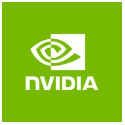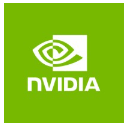
Groq
Transitioning to Groq requires minimal effort—just three lines of code to replace existing providers like OpenAI. Independent benchmarks validate Groq Speed's instant performance on foundational models. Designed for real-time AI applications, the Language Processing Unit (LPU) offers unmatched inference speed, surpassing traditional GPUs and CPUs in processing LLMs.
Top Groq Alternatives
LM Studio
LM Studio empowers users to effortlessly run large language models like Llama and DeepSeek directly on their computers, ensuring complete data privacy.
Ollama
Ollama is a versatile platform available on macOS, Linux, and Windows that enables users to run AI models locally.
NVIDIA TensorRT
NVIDIA TensorRT is a powerful AI inference platform that enhances deep learning performance through sophisticated model optimizations and a robust ecosystem of tools.
Open WebUI
Open WebUI is a self-hosted AI interface that seamlessly integrates with various LLM runners like Ollama and OpenAI-compatible APIs.
NVIDIA NIM
NVIDIA NIM is an advanced AI inference platform designed for seamless integration and deployment of multimodal generative AI across various cloud environments.
fal.ai
Fal.ai revolutionizes creativity with its lightning-fast Inference Engine™, delivering peak performance for diffusion models up to 400% faster than competitors.
Synexa
With access to over 100 ready-to-use models, sub-second performance on diffusion tasks, and intuitive API...
VLLM
It features advanced PagedAttention for optimal memory management, continuous request batching, and CUDA kernel optimizations...
Msty
With one-click setup and offline functionality, it offers a seamless, privacy-focused experience...
ModelScope
Comprising three sub-networks—text feature extraction, diffusion model, and video visual space conversion—it utilizes a 1.7...
Top Groq Features
- Seamless code migration
- Instant inference speed
- Independent benchmark validation
- Optimized for real-time applications
- Language Processing Unit (LPU)
- Overcomes LLM bottlenecks
- Higher computing capacity than GPUs
- Reduced time per word
- Eliminates external memory bottlenecks
- Superior performance on LLMs
- Supports popular ML frameworks
- End-to-end processing unit
- Designed for computationally intensive tasks
- Scalable for various applications
- Enhanced memory bandwidth management
- Streamlined integration with existing systems
- Regular updates and news
- User-friendly documentation
- High-level performance for large models.









